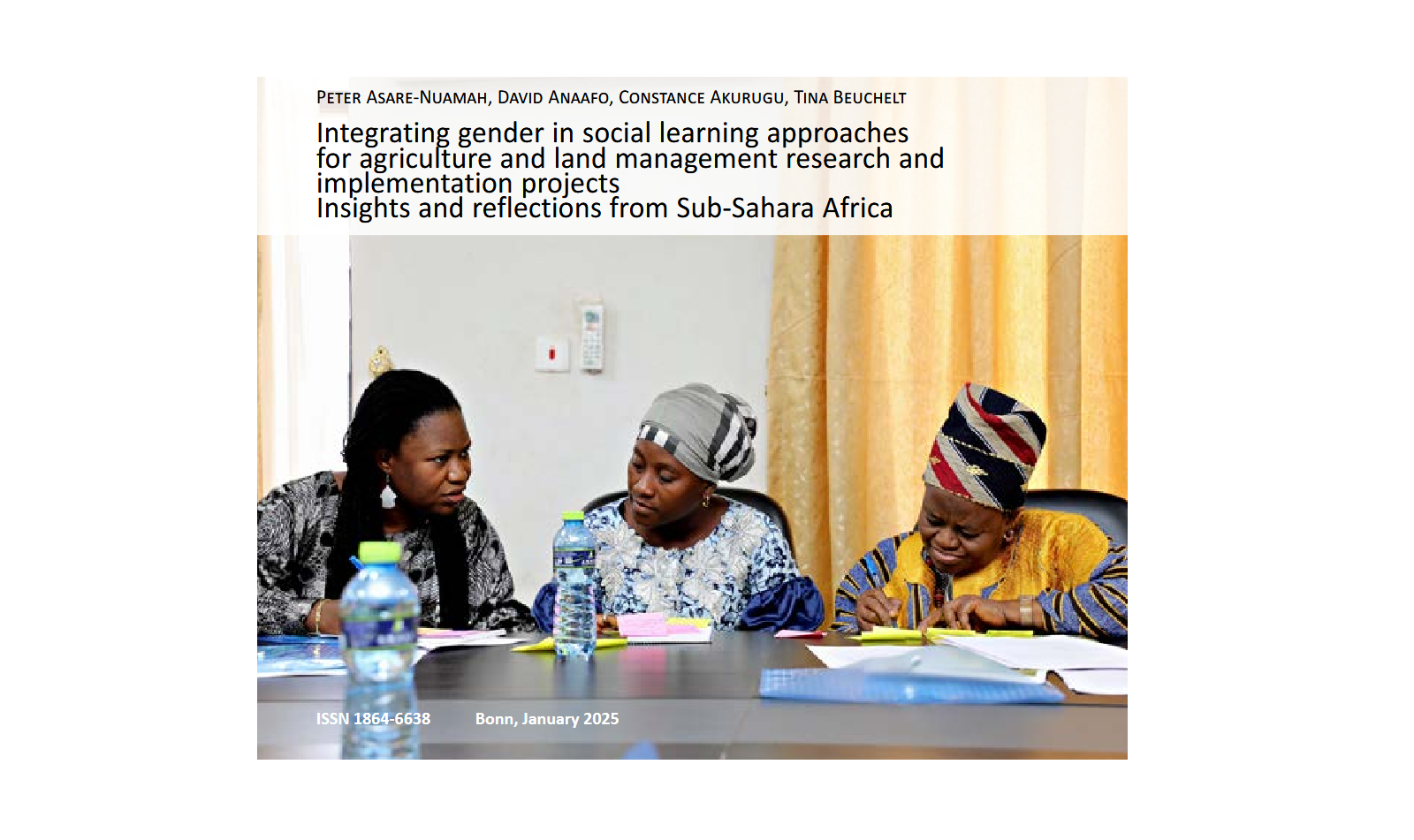Abstract
Contemporary global development discourses recognize the need for adopting inclusive approaches to sustainable development due to the complexities that characterize development and the pervasive inequalities and marginalization between and within states. Social learning approaches can be an important mechanism towards achieving inclusive sustainable development across contexts given the possibility they offer for addressing complex problems, like agriculture, land degradation or food insecurity, from inter- and transdisciplinary perspectives by working with all relevant stakeholders.
Yet, questions regarding gender, intersectionality and inclusivity have been insufficiently addressed by social learning scholars and practitioners, particularly in the African agriculture and land management context. Relying on the existing body of knowledge on social learning and our transdisciplinary backgrounds and experiences, we explore approaches for integrating gender in social learning. We also propose an iterative framework for practical application of social learning with a gender perspective.
We argue that developing and implementing an effective Gendered Social Learning (GSL) approach requires an excellent understanding of the study context and stakeholders, including the use of power and stakeholder analyses. The social learning process must be well institutionalized and facilitated to enhance trust among stakeholders. Again, a safe and inclusive space for dialogue and discovery, negotiating objectives and co-creating solutions is essential. Performing a gender analysis of relevant dimensions of diversity and intersectionality enables the solutions and innovations to be contextualized to the needs and priorities of diverse women, men and marginalized groups.
This paper describes the theoretical frame of the GSL Approach, which is designed flexible enough to be adapted to various local contexts.
